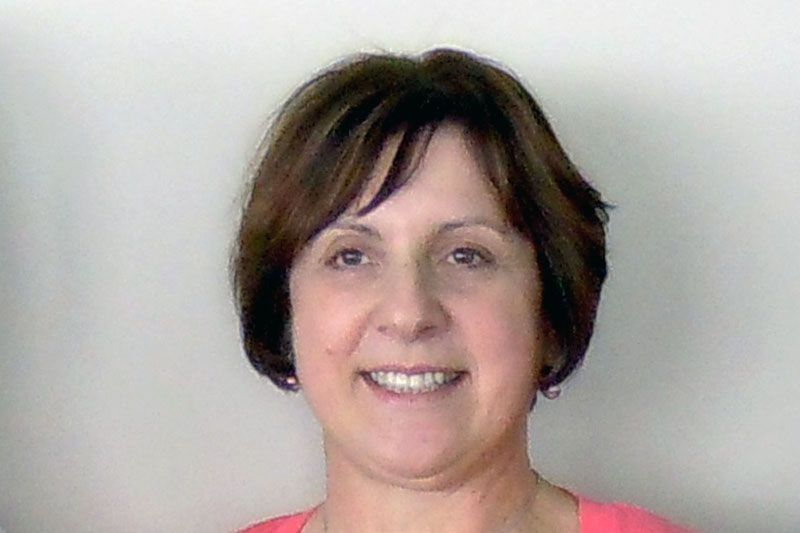Jeff Green | Feb 25, 2016
It's been two months since Brenda Bonner retired after working for eight years as a Nurse Practitioner (NP) at the Sharbot Lake Family Health Team.
At 64, she was feeling that it was time to take a step back from full time work in a clinic. She saw patients at the clinic four days a week, often working through lunch and into the early evening, and she did a lot of paperwork at home.
“All in all it was a full time commitment,” she said this week from her home in Perth. Her work as a nurse practitioner, which came after a long career as a registered nurse, was some of the most rewarding in her career, and after taking a step back for a few weeks she has thought about her own future, about the future for nurse practitioners in general, and about their role in a reformed healthcare system in Ontario.
For her own part, Bonner has been considering a number of options.
“I would like to keep working, but with more balance in my life, more time for family,” she said.
She is considering taking on patients for house calls.
“For various reasons, including transportation issues, there are patients who require care in their own homes, so I might do some of that work. It is not covered by OHIP, but some supplemental health insurance policies will cover it,” she said.
She might be doing relief work in a community health centre in the vicinity of her home in Perth, and also some in-service education to health care organisations, to promote and maintain health knowledge and skills.
“I didn't have any of these ideas when I left Sharbot Lake, but over the last couple of months I have been considering how I can continue to work on my own terms by setting these things up. It is different for me since my whole career has basically been as an employee at only two jobs, as an RN in one location for 30 years and as an NP for eight years in Sharbot Lake. It's a change to be setting up a business of my own at this time,” she said.
Bonner has also spent time, before and after she left the Sharbot Lake Family Health Team, considering potential changes in the role that nurse practitioners play in the heath care system.
She supports some of the initiatives that are being promoted by the Nurse Practitioners Association of Ontario (NPAO).
“When the NPAO made submissions to the Ministry of Finance for the upcoming Ontario budget, they highlighted a few items that would make a difference for NPs and save money for the system as well,” she said.
One item that was featured in the submission is to deal with the pay and benefits gap between NPs who work in hospitals and those who work in primary care clinics.
“Salaries have been frozen since 2006 in clinics, which has led to a $30,000 pay gap, plus, NPs who work in hospitals enjoy the pension and benefits plans in the hospitals. This means that when positions in hospitals come open, NPs leave clinics, often rural clinics, for those jobs,” said Bonner.
The NPAO also supports the “right care in the right time in the right place, by the right provider”, an initiative of the ministry that intends to redirect healthcare dollars so they start to follow the patients and not the providers.
Bonner cited a case that illustrates how this is not happening currently. Public health units that were running sexual health clinics led by nurse practitioners have been switching to contracted clinics run by doctors. This has been done for financial reasons. The health units pay the NPs out of their own budgets, whereas the doctors can bill OHIP directly for the service. This is a financial benefit for the cash-strapped health units, but since the doctors’ billings are higher than the cost of clinics led by the nurse practitioners, ultimately there is a greater cost to the healthcare system as a whole and the ratepayers who fund it.
Finally, the NPAO is supportive of an initiative to locate NPs on a full time basis in long-term care facilities.
“Acuity level is increasing in long-term care facilities. Seniors are staying at home longer, and they are older and sicker when they go into long-term care. Nurse Practitioners on staff save doctor visits and visits to emergency units at hospitals,” said Bonner.
More Stories
- Latest CUPW Job Action Stops Postal Delivery Of The Frontenac News Forcing Alternate Plans
- Opponents of Barbers Lake Gravel Pit Pack Ag Hall in McDonalds Corners
- Bobsleigh Olympian Jay Dearborn At Mikes Pizza In Sydenham
- The Loins Club Of and O'Lakes Roar
- North Frontenac Back Roads Studio Tour - September 27 and 28
- Sunday Market Vendors Give Back
- George Street Work As Town Hall Renovation Nears Completion
- One Way Street Plan Hits A Dead End - Central Frontenac Council, September 9
- Global Gardening
- No Winner Yet in Catch The Ace But Fundraising Target Met

